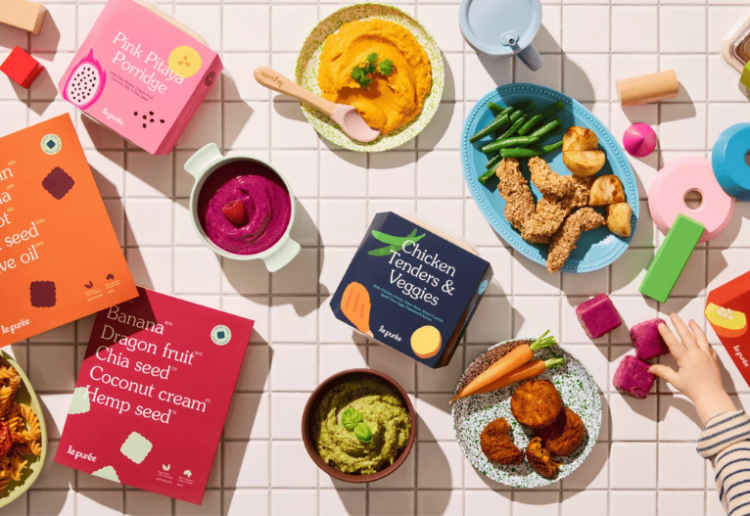Did you know the human brain is already at 95 per cent of its peak size by age six¹? Learning and development is critical in a child’s first few years of life, so we’ve asked parenting expert, Dr. Justin Coulson, to share his tips for ensuring your child gets what they need for optimal learning.
Giving young people a nutritional leg-up is key for optimal brain health. Omega-3 fish oil that is high in DHA plays a vital role in brain development; however, a recent literature review has found up to half of all Aussie children aren’t getting enough to support their growing brains² , likely attributed to the fact that kids are most fussy with their food in the early years and fatty fish – the source of Omega-3 – has an unusual taste, smell and texture that they may not be used to.
Dr Justin Coulson – himself a father to six daughters! – says attention, learning, memory and concentration are all skills learned early in life where poor development can be associated with a reduced ability to concentrate, significantly impacting a child’s ability to learn – and even socialise within their most formative years. Without adequate levels of omega-3 DHA in the diet, research shows that key regions of the brain responsible for supporting attention may hinder development³.

Here’s how to optimise your child’s learning⁴ capabilities:
- Teach through play: Singing with actions (think: ‘Incy Wincy Spider’), talking about what you’re doing while playing (“we’re building blocks to make our tower higher”), and generating surprise through games like ‘peek-a-boo’ can help your child to enjoy learning and pick up on social cues, quickly. Even something as simple as naming the colour of the toy you’re playing with or highlighting its size and shape expands your child’s cognitive capacity.
- Supplement their diet: If your child’s a fussy eater and doesn’t like the taste or texture of health foods like salmon, kidney beans and blue or blackberries, you can ensure they can still access brain-benefiting fatty acids by complementing their diet with DHA Fish Oil⁵⁶⁷ supplements. Research shows 50% of Australian children have low levels of DHA from fish in their diet², which may be associated with impairments in cognitive and behavioural performance.
- Move your body (and theirs!): Wiggling your baby’s body, and encouraging young children to refine their skills by using a non dominant hand can help with brain-body coordination. In addition, active bursts of exercise throughout the day – especially together – helps improve sleep hygiene and cultivates balance and other motor skills. Set a good example and ride together or run around the backyard playing ball with your older child, or go for walks with bub in a pram to stimulate their senses (flower smells, bright colours, forward motion, etc).
- Reduce stress: Emotions are contagious. Children pick up on our energy, including anxiety. Try your best to reduce exposure of stress and trauma while learning, and create as happy an environment as possible for your child to learn.
- Engage in memory tasks: Research shows that increasing omega-3 may support short-term memory in children who had low levels to start with². Nursery rhymes repeated over and over can be a little tedious for us parents, but for kids they have a very important role – helping your child develop language patterns. Repetition and memory tasks such as alphabet learning through books or playmats, eating omega-3 fatty acids², and reading books that link noises to the pictures, also helps a child to learn cause and effect relationships.
- Reduce screen time: Screen time is great in moderation, though should be managed to ensure there is room for cognitive development through movement and play. If you are using a screen to entertain your child, consider educational and bright shows with positive storylines to help your child learn emotionally and developmentally. I like Aussie faves: Bluey and The Wiggles
Remember, giving your child the room to develop at their own speed cultivates trust. If you’re ever
unsure or have any questions about your own child’s development trajectory, speak with a
healthcare professional.
1 Lenroot RK & Giedd JN. Neurosci Biobehav Rev 2006;30:718–729.
2 Rahmawaty S, et al. Lipids 2013;48:869–877.
3 Almeida DM, et al. Nutr Nuerosci 2017;20(4):246–254.
4 Giedd JN, Rapoport JL. Structural MRI of pediatric brain development: what have we learned and where are we going?. Neuron. 2010 Sep9;67(5):728-34.
5 Peters BD, et al. J Neurosci 2014;34(18):6367-6376.
6 Innis SM. J Nutr 2007;137(4):855-859.
7 McNamara RK, et al. Nutr Neurosci 2013;16(4):183-190.
Tell us in the comments below: How does your child like to learn?




















-

-
-
mom462038 said
- 02 Sep 2023
-

-
-
mom465794 said
- 24 Jul 2023
-

-
-
MandaMags said
- 24 Jul 2023
-

-
-
cassy26 said
- 21 Jul 2023
-

-
-
BellaB said
- 20 Jul 2023
-

-
-
Ellen said
- 20 Jul 2023

-

-
-
mom465683 said
- 19 Jul 2023
-

-
-
mom486197 said
- 19 Jul 2023
-

-
-
TraceyGail said
- 19 Jul 2023
-

-
-
Ellen said
- 19 Jul 2023

-

-
-
Sklh said
- 19 Jul 2023
-

-
-
mom265671 said
- 18 Jul 2023
-

-
-
Frankiielot said
- 18 Jul 2023
-

-
-
BellaB said
- 18 Jul 2023
-

-
-
mom93821 said
- 18 Jul 2023
Post a comment10:27 am
8:27 pm
1:06 pm
10:55 am
7:04 pm
-

-
-
Ellen replied
- 24 Jul 2023 , 7:47 am

Reply7:51 am
9:17 pm
12:47 pm
12:13 pm
4:27 am
-

-
-
mom93821 replied
- 19 Jul 2023 , 6:52 am
Reply2:06 am
9:36 pm
8:15 pm
7:23 pm
6:24 pm
To post a review/comment please join us or login so we can allocate your points.